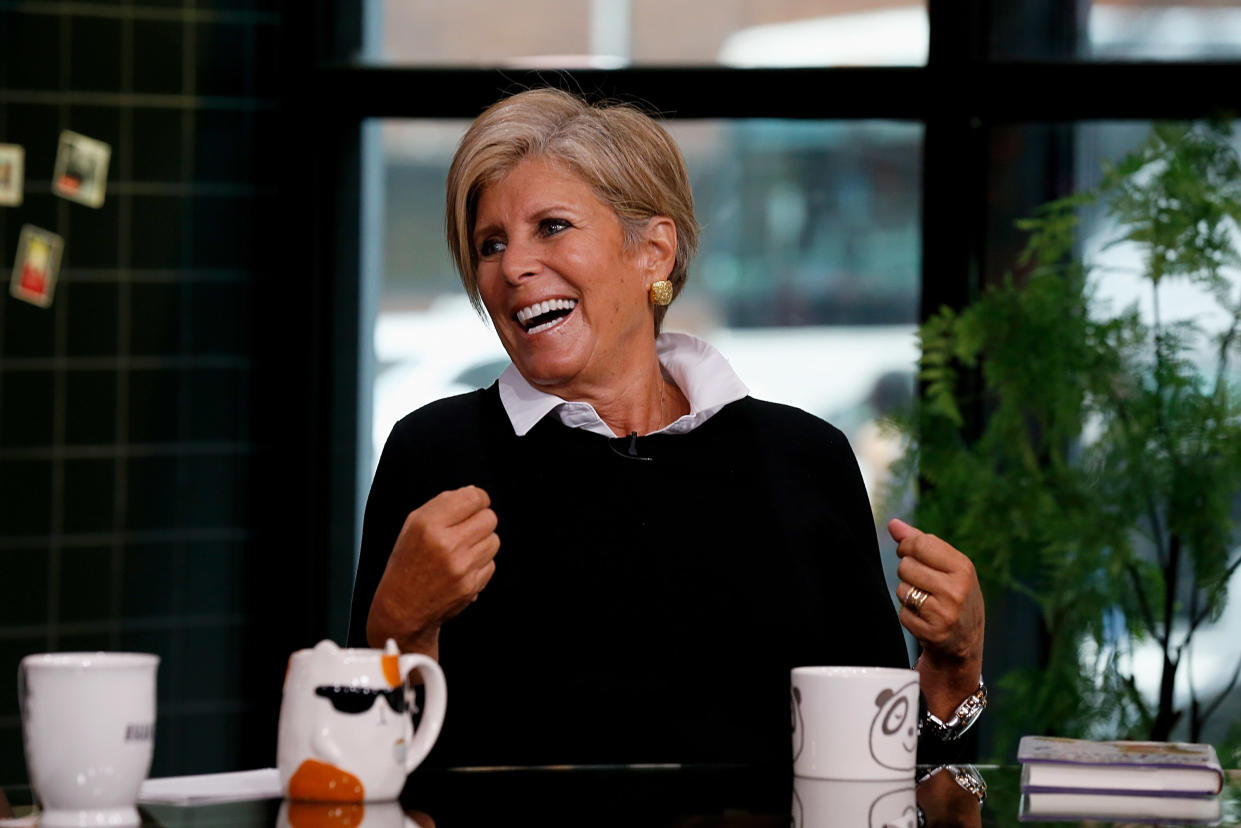Suze Orman: The 'government overdid it' on COVID stimulus
As the U.S. economy grapples with soaring inflation and rising interest rates that could trigger a recession, the Biden administration is being blamed for overheating the economy with too much stimulus aid in the wake of the COVID-19 pandemic.
In an interview with the Associated Press published Thursday, President Joe Biden called the notion that the federal stimulus package caused inflation "bizarre."
Still, some prominent figures, including personal finance expert Suze Orman, have questioned the federal government's decision to spend roughly $5 trillion in pandemic stimulus that included aid for small businesses, expanded unemployment insurance, and a bailout for airlines, among other measures.
“I do think the government overdid it in many different ways. I think they should have started to raise interest rates before they did. They waited too long,” Orman told Yahoo Finance Editor-in-Chief Andy Serwer in a wide-ranging interview on Monday. “I personally think that we are heading into a recession, a mild one, either at the end of this year or the beginning of next.”

With consumer price index (CPI) inflation data reaching levels not seen since 1981, economists and others are considering whether the government went overboard with spending in the aftermath of the COVID-19 pandemic in early 2020. Former Treasury Secretary Larry Summers, a prominent Democrat, predicted COVID aid would spur inflation and told Bloomberg last year it was the “least responsible” macroeconomic policy in the past 40 years.
In an interview with Andy Serwer last month, Summers said it's "pretty likely" we'll see a recession in the next two years.
To be sure, not every economist agrees that the stimulus spurred inflation. Some experts note that the other parts of the world, including the European Union, have seen steep inflation without large stimulus packages. Moreover, stimulus defenders argue that in the wake of COVID-19 shut-downs, Americans needed the financial boost, which included three rounds of stimulus checks totaling $803 billion.
Still, the National Bureau of Economic Research found in October 2020 that most of the stimulus money was saved or used to pay off debt. The personal savings rate, calculated by Federal Reserve Economic Data by the St. Louis Fed, peaked during periods of stimulus check disbursements. After the second and third rounds of stimulus payments, the personal savings rate peaked at 19.9% and 26.6%.
However, the savings rate declined to 4.4% as of April 2022, suggesting that after initially saving stimulus payments, some Americans opted to spend that money.
Congress took swift action in March 2020 to keep Americans afloat, as many employees in the services industries found themselves out of work. The Coronavirus Aid, Relief, and Economic Security (CARES) Act initially provided stimulus checks of $1,200 for eligible individuals. Seven months later, the U.S. authorized $600 stimulus payments for eligible adults under the COVID-related Tax Relief Act of 2020. In early 2021, Congress authorized a third round of stimulus worth $1,400 for eligible adults.
Speaking to Yahoo Finance, Orman suggested that not all of these checks were necessary.
“Many people that I personally know, got stimulus checks," she said. "And the truth of the matter is, they really didn't need them."
Despite the controversy surrounding stimulus checks, Americans have reaped some economic benefits. The first two rounds of stimulus payments lifted 11.7 million people out of poverty in 2020, the Census Bureau reported last year. That included 3.2 million children under 18 and 2.1 million people over 65.
Yaseen Shah is a writer at Yahoo Finance. Follow him on Twitter @yaseennshah22
Read the latest cryptocurrency and bitcoin news from Yahoo Finance
Read the latest financial and business news from Yahoo Finance
Follow Yahoo Finance on Twitter, Instagram, YouTube, Facebook, Flipboard, and LinkedIn
